Chatbot KPI Best Practices for Next-Gen Customer Support
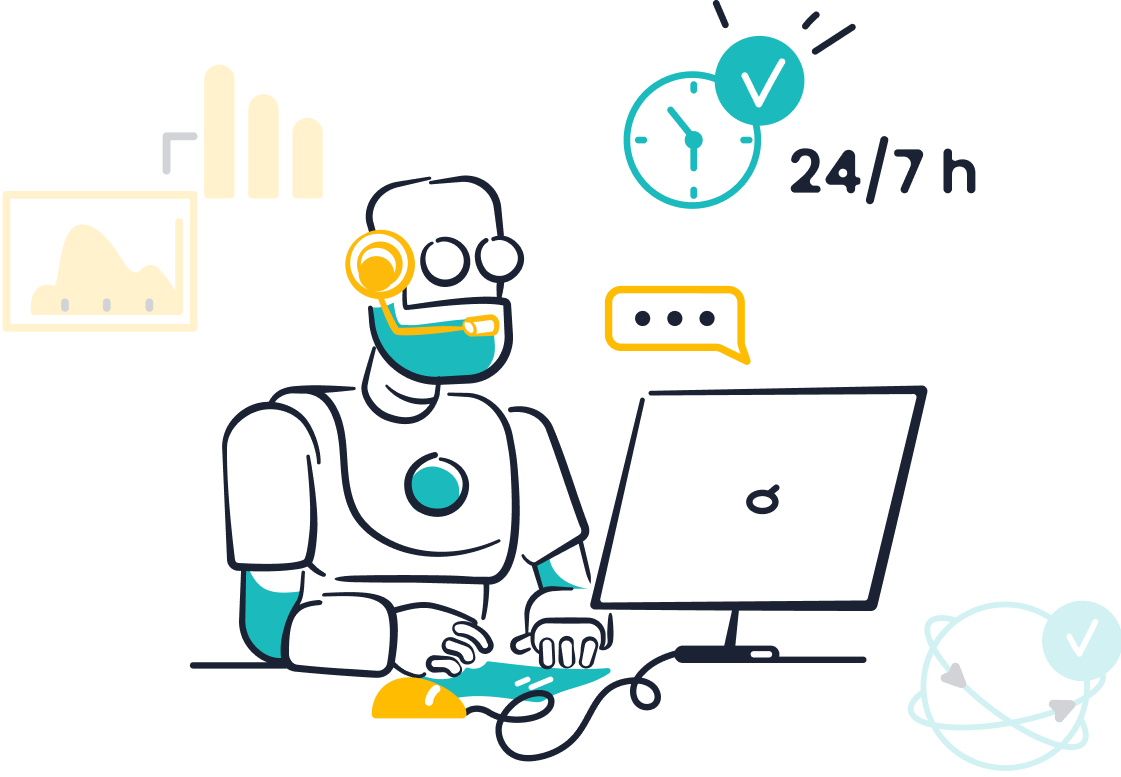
AI chatbots now shape the customer experience in every industry. You see customer support transformed as 80% of companies adopt ai chatbots by 2025, with 95% of customer interactions handled by ai. Customers want instant, personalized support at any hour. Tracking the right chatbot kpi helps you meet these demands and optimize your chatbot strategy for better customer support and satisfaction.
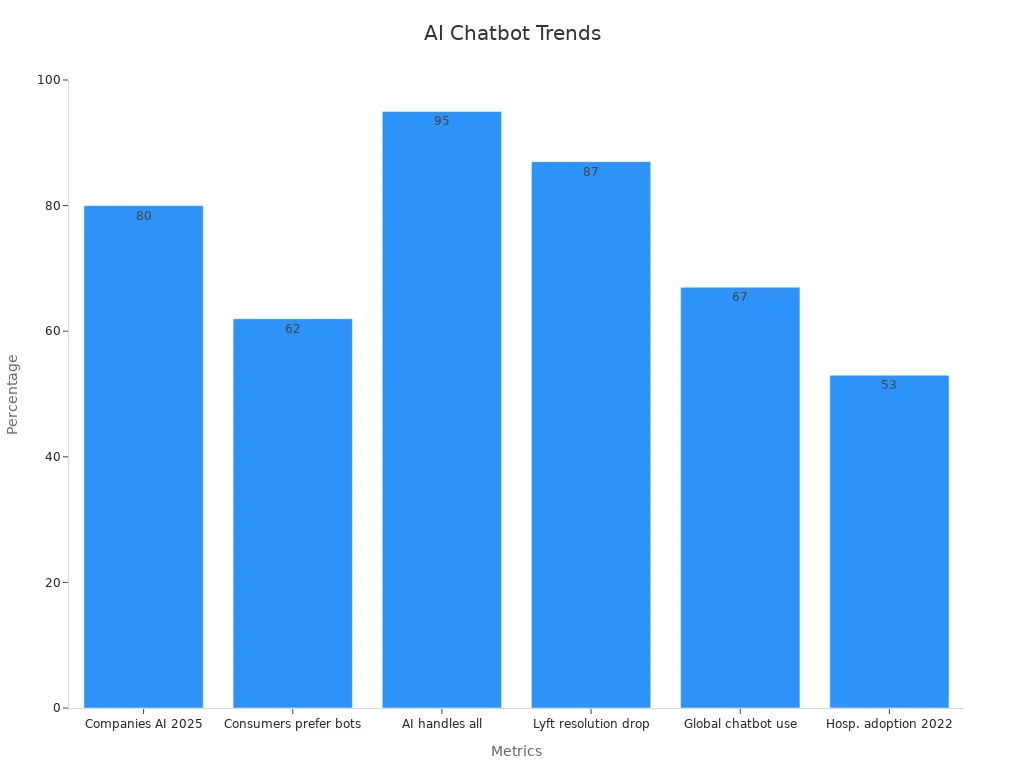
Sobot AI leads this change by delivering innovative, customer-focused ai chatbots that enhance every support experience. The right chatbot kpi strategy ensures your customers receive exceptional support and boosts your success.
Chatbot KPI Trends 2025

Industry Growth
You see rapid growth in the chatbot market as businesses focus on customer support and customer experience. The global conversational ai market is set to reach $61.69 billion by 2032. Chatbot spending in retail and e-commerce alone is expected to hit $72 billion by 2028. These trends show that ai chatbots are now a core part of customer service trends across every industry. More companies invest in ai to improve customer support, reduce costs, and deliver better experiences.
| KPI/Metric Description | Statistic/Value | Industry/Context |
|---|---|---|
| Global Conversational AI market growth | From $12.24B in 2024 to $61.69B by 2032 | Overall market |
| Chatbot market growth | From $7.01B to $20.81B by 2029 | Overall market |
| Retail & eCommerce chatbot spending | Expected $72B by 2028 | Retail/eCommerce |
| U.S. consumers interested in generative AI commerce | 66% | Consumer behavior |
| CX leaders planning to increase bot budgets in 2025 | 64% | Enterprise investment |
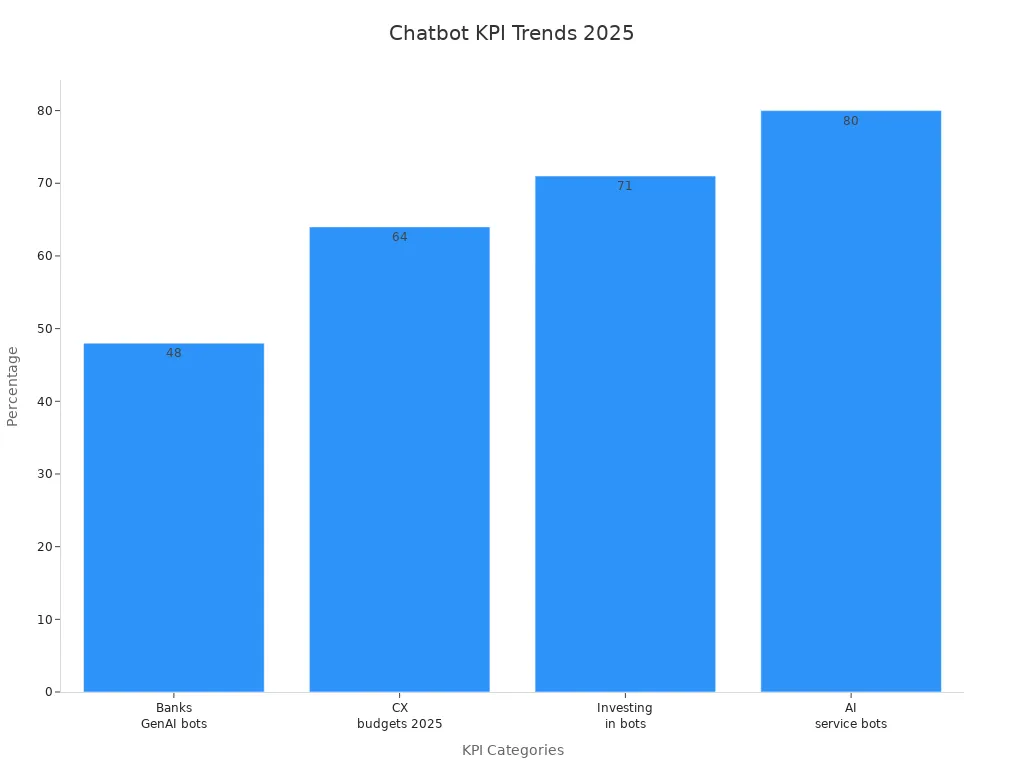
AI Chatbots Evolution
You notice that ai chatbots now do more than answer simple questions. They use conversational ai to predict customer needs, personalize support, and handle complex tasks. Trends show a shift from measuring only efficiency to tracking customer satisfaction, engagement, and predictive capabilities. Companies now use ai chatbots to forecast trends, detect issues early, and improve decision-making. You benefit from chatbots that learn and adapt, making customer support smarter and more effective.
Tip: Track both quantitative and qualitative chatbot kpi to get a full view of your customer service trends.
Sobot’s Role
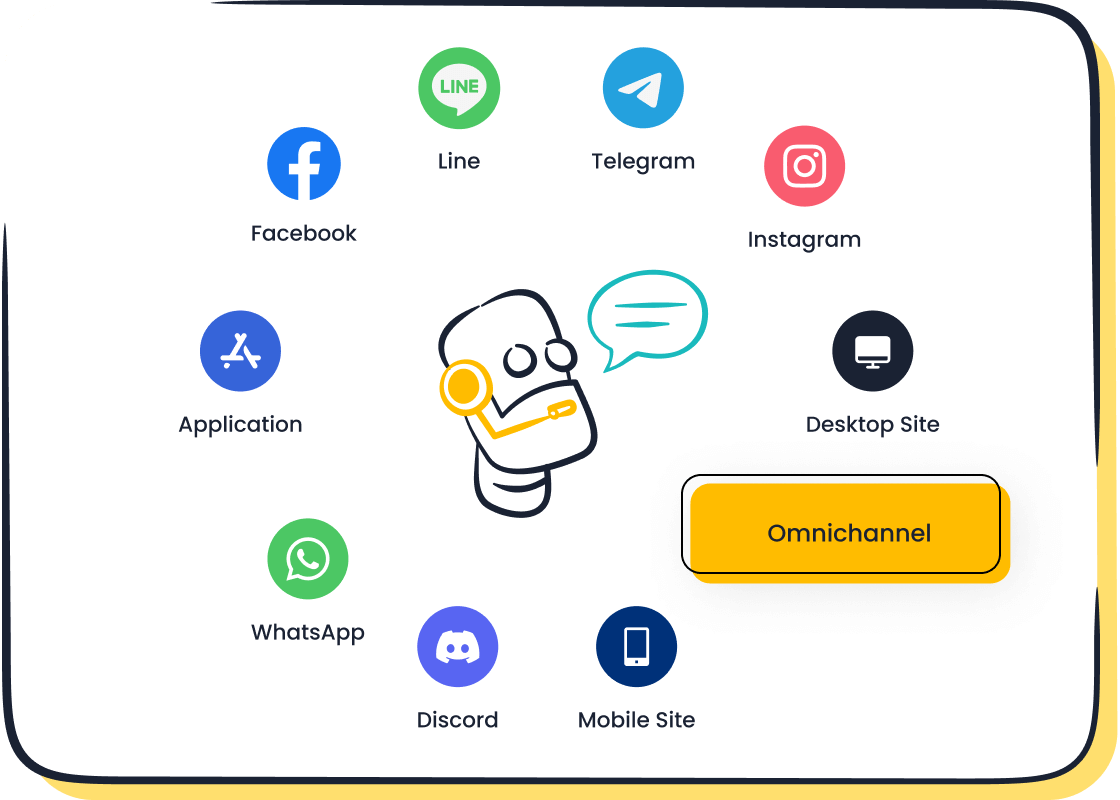
Sobot leads the way in ai chatbots and customer support innovation. You gain access to a no-code platform that supports omnichannel customer service and delivers over 300 statistical reports. Sobot’s ai-first approach means you get human-like service, secure data handling, and real-time insights. Brands like Samsung and OPPO trust Sobot to boost customer satisfaction and efficiency. Sobot’s chatbots resolve up to 70% of inquiries and help you increase conversions, making your customer experience stand out in a competitive market.
Essential Chatbot KPIs
Tracking the right chatbot KPI helps you unlock the full potential of ai chatbots in customer support. You need to focus on metrics that measure real outcomes, not just activity. Here are the five essential KPIs every next-gen customer support team should monitor:
Resolution Rate
Resolution rate shows how well your ai chatbots solve customer issues. You calculate it as the percentage of customer interactions where the chatbot resolves the problem without human help. A high resolution rate means your chatbot delivers real value, not just deflecting tickets.
| KPI | Definition & Measurement | Key Statistics & Insights |
|---|---|---|
| Resolution Rate | Percentage of customers who confirmed their issue was resolved by the chatbot. Calculated as (resolved requests / total requests) * 100%. | Emphasizes actual problem-solving ability over mere ticket deflection. Higher resolution rate indicates better chatbot effectiveness. |
You see that increasing resolution rates lead to better customer support outcomes. For example:
- Fewer unresolved tickets mean faster response and improved efficiency.
- Higher resolution rates signal operational improvements and boost customer satisfaction.
- Sobot’s ai chatbots help brands like OPPO achieve an 83% chatbot resolution rate, driving a 94% positive feedback rate and a 57% increase in repurchase rate.
Tip: Regularly analyze failed tickets to identify gaps in your chatbot’s knowledge base and improve resolution.
Customer Satisfaction Score
Customer satisfaction score (CSAT) measures how happy customers feel after interacting with your ai chatbots. You collect this score through post-interaction surveys, usually on a 1-5 scale. A CSAT score above 80% is a strong benchmark in industries like SaaS and e-commerce.
| KPI | Why It Matters | How to Measure |
|---|---|---|
| Customer Satisfaction (CSAT) Score | Indicates chatbot efficiency and customer attitude post-interaction. | Post-interaction survey rating from 1 to 5; average or % of satisfied customers (4 or 5). |
Tracking customer satisfaction scores gives you reliable, reproducible insights into chatbot performance. Statistical studies confirm that these scores remain consistent across different question types and difficulty levels, making them a trustworthy metric for continuous improvement.
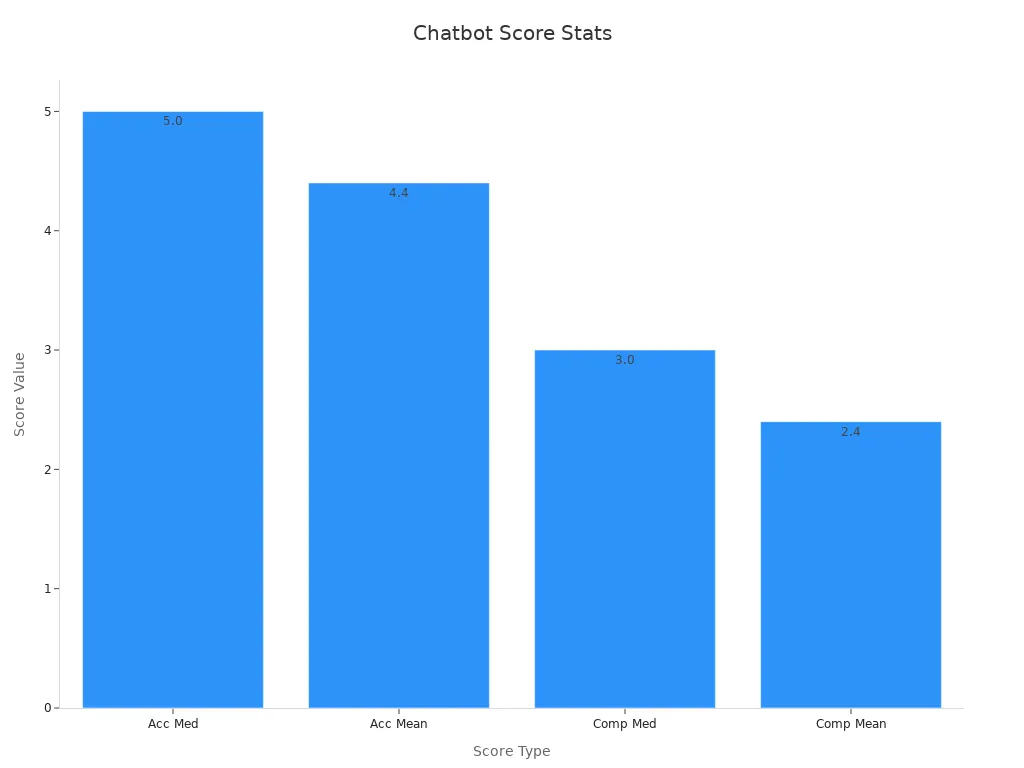
You can use open-ended feedback to understand what drives satisfaction and where your ai chatbots can improve. Sobot’s reporting tools make it easy to track CSAT for both bot and human interactions, helping you optimize every customer interaction.
First Contact Resolution
First contact resolution (FCR) measures how often your ai chatbots solve customer issues on the first try. High FCR rates mean customers get answers quickly, without needing to follow up or escalate to human agents. This metric directly impacts customer satisfaction and operational efficiency.
Industry benchmarks show that top-performing companies achieve FCR rates above 80%. Each 1% increase in FCR can reduce operating costs by 1% and boost customer satisfaction by the same amount. Sobot’s ai chatbots use advanced knowledge bases and real-time intent detection to maximize FCR, helping you deliver seamless customer support across all channels.
Note: Benchmark your FCR against industry leaders to set actionable goals and drive continuous improvement.
Deflection Rate
Deflection rate tells you how many customer inquiries your ai chatbots handle without needing human intervention. A high deflection rate means your chatbot efficiently manages routine questions, freeing your agents to focus on complex issues.
- Deflection rate directly measures chatbot efficiency and cost savings.
- For example, an e-commerce chatbot that resolves order tracking questions reduces the workload for your support team.
- Sobot’s ai chatbots operate 24/7, handling up to 70% of inquiries and saving up to 50% on agent costs.
You should monitor deflection rate to ensure your ai chatbots deliver both efficiency and customer satisfaction.
User Engagement
User engagement measures how actively customers interact with your ai chatbots. High engagement means customers find your chatbot helpful and easy to use. Studies show that engagement with chatbot features predicts better support outcomes than just counting logins or messages.
| Engagement Metric | System Success Outcome | Correlation Strength |
|---|---|---|
| User Participation | System Quality, Use, Satisfaction, Organizational Impact | Moderate Positive |
| User Involvement | System Success | Stronger Positive |
You can boost engagement by personalizing responses and offering proactive support. Sobot’s ai chatbots use smart self-service and proactive messaging to increase engagement, helping you convert more leads and improve customer satisfaction.
Remember: Engaged customers are more likely to return, recommend your service, and contribute to long-term business growth.
Measuring Chatbot KPI Performance
Data Collection
You need reliable data to measure ai chatbots and customer support success. Real-time analytics let you track every customer interaction and see how your chatbot performs. You can use customer satisfaction surveys, sentiment analysis, and engagement metrics to check data consistency. Continuous training with diverse datasets improves ai understanding and data quality. Regular updates and feedback loops keep your data accurate and relevant. Integrating your chatbot with multiple platforms, like Sobot’s omnichannel system, broadens your data sources and increases reliability.
- Real-time analytics track user interactions and chatbot performance.
- Customer satisfaction indicators, such as CSAT scores, provide qualitative reliability.
- Engagement metrics, like conversation counts and active users, measure data consistency.
- Continuous training and regular updates improve data quality.
- Integration with multiple platforms ensures reliable data collection.
Tip: Use standardized data collection methods and organize your data in clear databases or spreadsheets for accurate analysis.
Analytics Tools
You gain deeper insights into ai chatbots and customer support by using advanced analytics tools. Platforms like Google Analytics for Chatbots, Dashbot, and Chatbase offer features such as conversation flow analysis, sentiment tracking, and predictive analytics. These tools help you track key metrics like conversation volume, user engagement, conversion rates, and customer satisfaction. Sobot’s reporting dashboard provides over 300 statistical reports, helping you monitor chatbot resolution, efficiency, and customer satisfaction in real time.
- Conversation flow analysis
- Sentiment tracking
- Intent recognition accuracy
- Predictive analytics
- User segmentation
- Funnel analysis
- Cross-channel analytics
These analytics features allow you to optimize ai chatbots for better customer support and higher satisfaction.
Benchmarking
Benchmarking helps you compare your ai chatbots and customer support performance with industry leaders. You can track metrics like service level, handle time, abandon rate, and first contact resolution. Many companies now use Net Promoter Score (NPS) and Customer Effort Score (CES) to get a full view of customer satisfaction. Cloud-based dashboards and real-time monitoring make it easy to spot trends and act quickly. Sobot’s analytics let you benchmark your chatbot’s resolution and efficiency against best-in-class standards.
Recent trends show that custom, task-specific benchmarks give you more accurate results than generic tests. Tools like YourBench and crowdsourced platforms allow you to compare chatbot responses in real-world scenarios, helping you set realistic goals for customer satisfaction and support efficiency.
| KPI Name | Description | Formula | Optimization/Measurement Methodology |
|---|---|---|---|
| Brand Interactions per User | Measures how often users actively engage with the chatbot (clicks, messages, buttons, etc.) | Total Interactions / Total Users | Continuous monitoring of engagement depth; optimize touchpoints to reduce friction and improve customer experience. |
| Customer Insights per User | Amount of declared data collected from users during conversations | Total Declared Data Points / Total Users | Define attributes and taxonomies for responses; leverage data for segmentation and personalized recommendations. |
| Chatbot CTR to Website | Percentage of chatbot users clicking through to website | (Total Clicks / Total Users) x 100 | Set conversation goals; use A/B testing on conversation copy and creatives; monitor drop-offs and improve intents. |
| Matched Response Rate | Measures how often chatbot responses correctly match user intents | N/A | Not explicitly defined in formulas but implied as a quality metric to improve chatbot understanding and response. |
Best Practices for AI Chatbots
Continuous Improvement
You need to treat continuous improvement as the foundation of your chatbot strategy. The AI landscape changes fast, and your ai chatbots must adapt to new customer needs and expectations. You can achieve this by setting up feedback loops, monitoring performance, and updating your chatbot knowledge base regularly. Enterprises that use continuous learning mechanisms see better customer satisfaction and higher resolution rates.
- Enterprises implement continuous learning to refine chatbot performance over time.
- Active monitoring and human oversight help you spot improvement areas and fix errors quickly.
- Feedback from chatbot interactions lets you enhance capabilities with every iteration.
- Continuous improvement remains essential because AI evolves rapidly.
You should measure progress using clear metrics. The table below shows how you can track and improve your ai chatbots for better customer support and efficiency:
| Quantitative Measure | Description and Role in Improvement |
|---|---|
| User Satisfaction | Post-interaction surveys or sentiment analysis show experience improvements over time. |
| Resolution Rate | Percentage of queries resolved by the chatbot without human help. |
| Response Accuracy | Tracks the chatbot's ability to provide correct and relevant answers. |
| Conversation Duration | Average length of interactions, optimized for efficiency and thoroughness. |
| Churn Rate | Percentage of users who stop using the chatbot, monitored to improve retention. |
| Issue Escalation Rate | Frequency of queries escalated to human agents, reduced by enhancing chatbot capabilities. |
You can use agile development and machine learning analysis to identify trends, predict issues, and generate actionable insights. Sobot’s AI chatbots use these best practices to deliver high efficiency, customer satisfaction, and continuous optimization. Sobot’s reporting dashboard helps you track over 300 metrics, making it easy to spot areas for improvement and boost your customer support strategy.
Tip: Regularly review feedback and update your chatbot to keep pace with changing customer needs and deliver a superior customer journey.
Personalization
Personalization stands at the heart of a successful ai-driven customer experience. You can use ai chatbots to tailor conversations, adapt tone and style, and offer recommendations based on customer data. Studies show that 80% of users report positive experiences with chatbots, and 83% of businesses see increased customer satisfaction with predictive personalization.
A controlled experiment with 475 participants found that gender-based personalization increased users’ intention to keep using the chatbot. Perceived enjoyment and usefulness also strongly predicted future usage. A consumer survey revealed that 64% of people value 24/7 availability, which is a form of personalized service that meets individual needs for instant support.
| Statistic Description | Percentage / Value |
|---|---|
| Businesses seeing increased customer satisfaction with predictive personalization | 83% |
| Businesses reporting faster support due to conversational AI | 56% |
| Businesses citing improved sales efficiency | 47% |
| Increase in customer retention reported by businesses using AI personalization | 25% |
| Reduction in support queries | 30% |
You can see that over 70% of customers expect personalized service from ai chatbots. Sobot’s AI chatbots deliver multilingual, 24/7 support and use smart self-service to personalize every interaction. This approach boosts customer satisfaction, increases retention, and drives efficiency across your customer support operations.
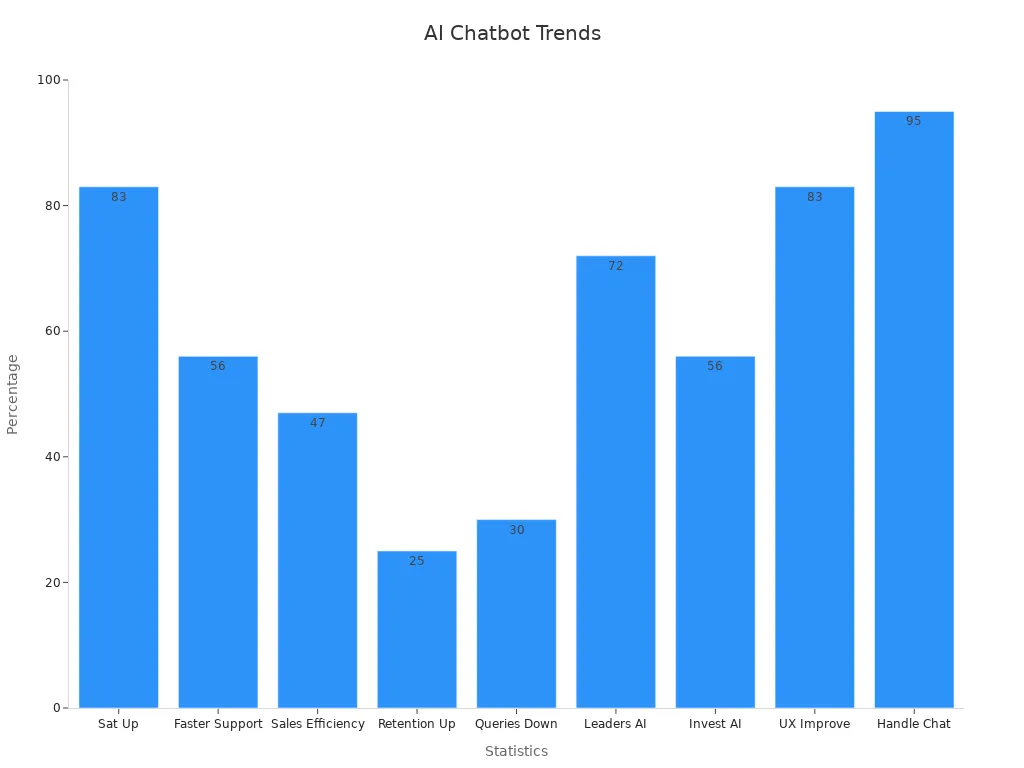
Note: Focus on making your ai chatbots enjoyable and useful. Personalization should enhance the customer experience and satisfaction, not just match identities.
Balancing Automation and Human Touch
You need to balance automation with the human touch to deliver the best customer support. AI chatbots handle routine questions and provide instant responses, but human agents bring empathy and problem-solving skills for complex issues. Data shows that 75% of customers worry about AI data security, so human oversight builds trust and ensures quality.
| Metric / Outcome | Data / Statistic | Explanation / Impact |
|---|---|---|
| Customer concern about AI data security | 75% of customers worry | Human oversight builds trust and addresses security concerns. |
| Reduction in support tickets | 25% decrease | AI handles routine queries, reducing agent workload. |
| Increase in customer satisfaction | 30% improvement | AI and humans working together enhance the customer experience. |
| Likelihood of exceeding sales goals | 83% higher with generative AI | AI-powered CRM with human input drives business results. |
You can automate repetitive tasks like FAQs and appointment scheduling, freeing agents for high-value work. Design seamless transitions from ai chatbots to human agents to avoid frustrating loops. Prioritize human support for urgent or sensitive issues to meet customer expectations for empathy and personalized care.
- AI chatbots provide 24/7 support and handle routine inquiries.
- Human agents offer emotional intelligence and nuanced solutions.
- Seamless handoffs ensure continuity and customer satisfaction.
- Personalized, empathetic language in chatbots improves the human touch.
- Human oversight maintains brand consistency and authenticity.
Sobot’s AI chatbots integrate with live chat and ticketing systems, making it easy for you to switch between automated and human support. This hybrid approach increases efficiency, boosts customer satisfaction, and delivers a superior customer experience.
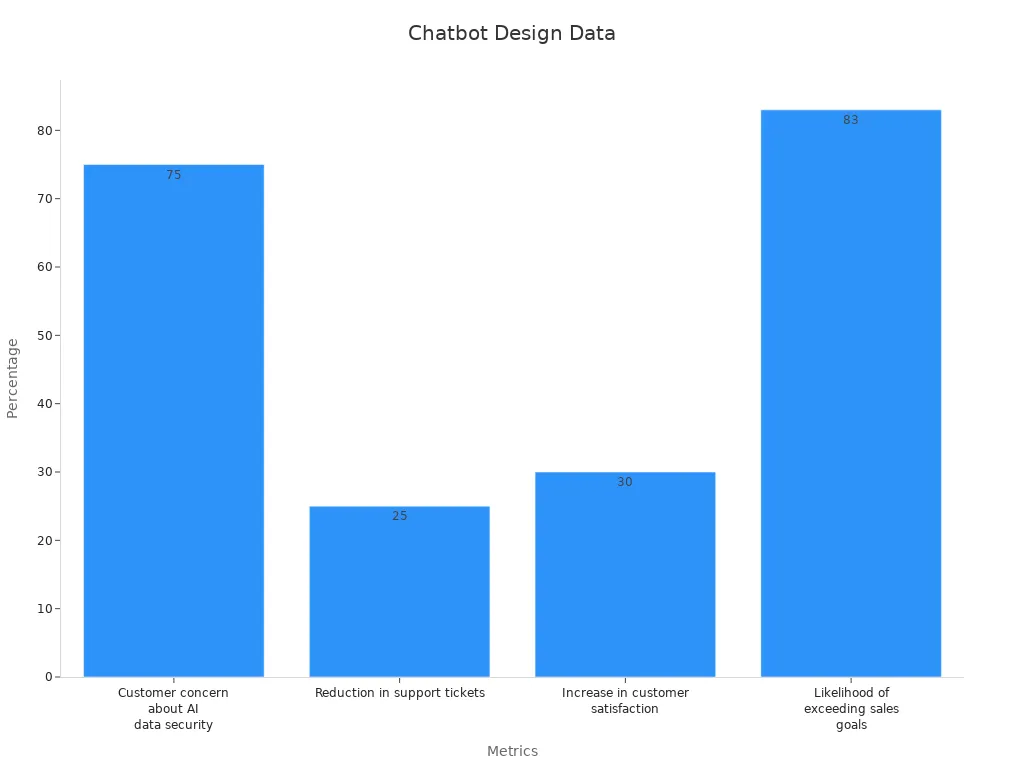
Remember: The best chatbot strategy combines the speed and efficiency of AI with the empathy and expertise of human agents. This balance leads to higher satisfaction, better resolution rates, and a stronger ai-driven customer experience.
Sobot Chatbot in Action
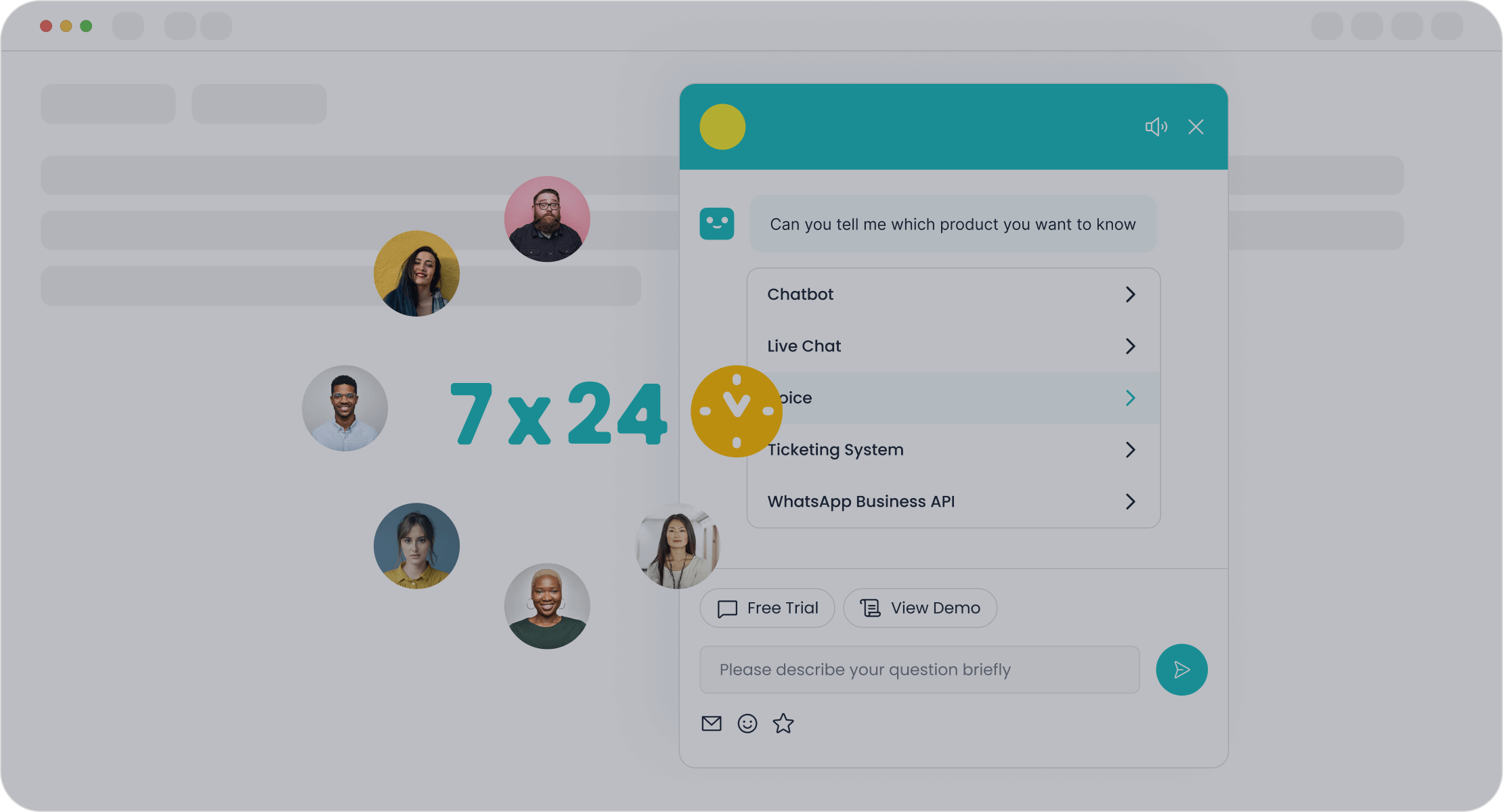
OPPO Success Story
You can see the power of ai chatbots in the OPPO case. OPPO, a global leader in smart devices, faced a surge in customer inquiries during peak shopping seasons. By using Sobot’s chatbot and ticketing system, OPPO improved customer support efficiency. The chatbot handled repetitive questions, letting human agents focus on complex issues. OPPO optimized its knowledge base with ai, reducing maintenance work by 90%. This approach led to an 83% chatbot resolution rate and a 94% positive feedback score. OPPO also saw a 57% increase in repurchase rate, showing how ai chatbots drive real business growth and customer satisfaction.
Retail and E-Commerce Solutions
You benefit from Sobot’s ai chatbots in retail and e-commerce. These solutions offer 24/7 support, multilingual service, and seamless integration across channels. Companies using Sobot’s ai-powered support and automation have saved up to $1.3 million by reducing ticket volumes. Ai tools detect emotional cues and root causes of dissatisfaction, helping you take targeted actions that improve customer satisfaction scores. Sobot’s ai data analysis tool increased conversion rates by 38%. Multi-channel support ensures timely customer interactions and builds loyalty. A fashion retailer using ai chatbots similar to Sobot’s saw a 9.4% increase in customer satisfaction.
- Save costs with automated support
- Improve satisfaction with real-time ai insights
- Boost conversions and loyalty with proactive chatbot engagement
Real-World Impact
You experience measurable results with Sobot’s ai chatbots in customer support. Large brands like OPPO achieved a 57% increase in repurchase rate using Sobot’s live chat solution. Companies report significant operational cost reductions and improved CSAT after implementing Sobot’s ai customer service tools. Studies show that 67% of shoppers find ChatGPT-based assistants more effective than traditional scripted chatbots, highlighting the value of advanced ai chatbots in customer support. Multi-channel support from Sobot improves timely customer interactions and loyalty, leading to higher satisfaction and business success.
Tip: Choose ai chatbots that offer 24/7 support, multilingual capabilities, and seamless integration to maximize your customer support outcomes.
You drive customer service success by selecting and optimizing chatbot KPIs that match your business goals. Industry reports show that tracking trends like resolution rates, customer satisfaction, and efficiency leads to better customer support and higher satisfaction. Many companies still miss key analytics, so you should assess your current chatbot strategy. Sobot’s ai chatbots deliver advanced customer support, boost efficiency, and improve satisfaction across every channel. Explore Sobot’s AI solutions to transform your customer service and achieve next-level satisfaction.
FAQ
What is the most important chatbot KPI for customer support in 2025?
Resolution rate stands out as the top chatbot KPI. You should track how many customer issues AI chatbots solve without human help. Sobot clients like OPPO achieved an 83% resolution rate, which led to a 94% customer satisfaction score.
Tip: Focus on resolution rate to boost efficiency and customer satisfaction.
How do AI chatbots improve customer satisfaction?
AI chatbots provide instant answers, 24/7 support, and personalized experiences. Sobot’s multilingual chatbots help you engage customers in their preferred language. Studies show that 67% of shoppers prefer AI chatbots for quick support (source).
- Faster responses
- Consistent service
- Higher satisfaction
How can you measure chatbot KPI performance accurately?
You should use analytics dashboards to track chatbot KPI metrics like resolution rate, CSAT, and engagement. Sobot offers over 300 statistical reports for real-time monitoring. Benchmark your results against industry standards to ensure your AI chatbots deliver top customer support.
| KPI Metric | Measurement Tool |
|---|---|
| Resolution Rate | Sobot Analytics |
| CSAT | Post-Chat Surveys |
| Engagement | User Interaction Logs |
Why choose Sobot for optimizing chatbot KPIs?
Sobot delivers AI chatbots with omnichannel support, multilingual capabilities, and easy integration. You can automate up to 70% of inquiries, cut costs by 50%, and increase conversions by 20%. Sobot’s solutions help you achieve higher customer satisfaction and measurable business growth.
Sobot’s chatbot KPI tracking ensures your customer support stays ahead of industry trends.
See Also
Top Strategies To Enhance Customer Satisfaction In Live Chat
How To Excel At Providing Customer Support Via Live Chat
Ways Chatbots Improve Customer Experience In Online Shopping
